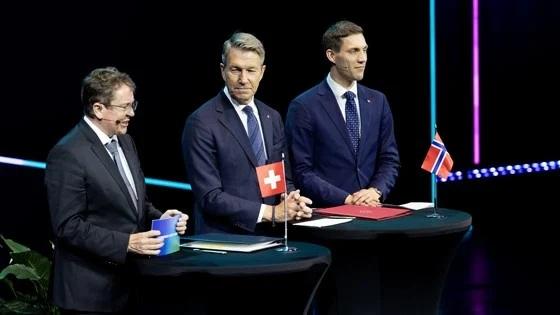
The governments of Norway and Switzerland have announced a ground-breaking international agreement focused on durable carbon dioxide removal, marking the first deal of its kind under Article 6.2 of the Paris Agreement.
This agreement aims to provide insights into regulatory frameworks, monitoring, and reporting and to aid in developing a sustainable commercial market for carbon capture and storage (CCS) and carbon dioxide removal (CDR). It further seeks to enable long-term investment in climate technologies. More details about carbon capture and storage can be found here.
Norwegian Minister of Energy, Terje Aasland, described the agreement as a pioneering step that allows testing of international cooperation on CCS and CDR with high environmental integrity and mutual benefit. Norway, with over 27 years of experience in safe and permanent CO2 storage, offers this expertise to European partners.
The agreement follows an international pact reached at the COP29 UN climate conference in November 2024, which focused on Article 6 of the Paris Agreement. This agreement seeks to establish high-integrity carbon markets, including Article 6.2, which outlines how countries will authorise carbon credit trading and operate registries to track country-to-country carbon market trading.
The agreement also establishes a legal framework for the cross-border transport and permanent storage of CO2, as well as the transfer of mitigation outcomes between the two nations.
Alongside the announcement, several companies have begun pilot activities under this new framework. Companies involved in carbon removal and storage include Swiss-based Neustark and Climeworks, Norway’s Inherit and Carbon Centric, France’s ClimeFi, and Germany’s Carbonfuture. These efforts also involve companies like Swiss International Air Lines, Swiss Post, SwissRe, UBS, Zürcher Kantonalbank, SIX, as well as the City of Zurich and Industrielle Werke Basel.
Albert Rösti, Swiss Minister for the Environment, Transport, Energy, and Communications, emphasised the importance of CO2 storage on the path to achieving net-zero targets. He noted that the technology complements existing decarbonisation efforts and strengthens innovation, providing opportunities for the economy and enhancing the Switzerland-Norway partnership.




